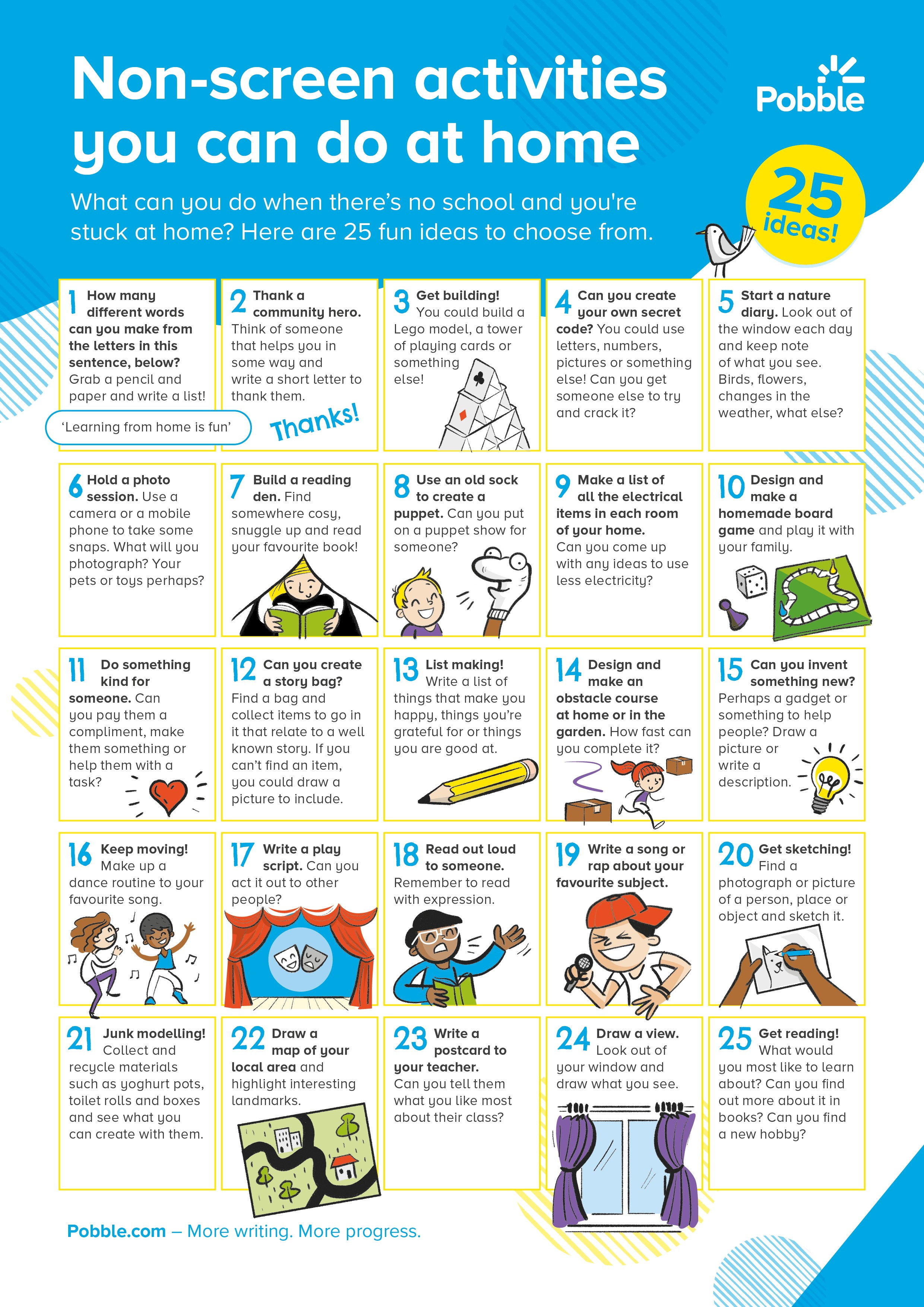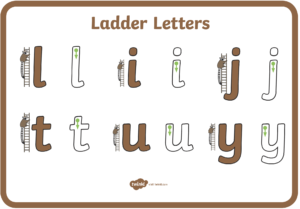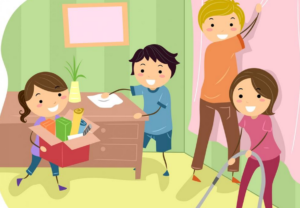Week beginning 20th April 2020
Home Learning Year 2
Welcome back 🙂
Dear Parents/Carers and Children,
Here are some instructions to help you know what you can doing when you are learning from home:
Morning Activities
During the morning, you should focus on Maths, Reading, Spelling and Writing activities. You should also read daily. Regularly ask an adult to test you and see how many you can get right.
Enclosed is a suggested updated timetable for this period of learning at home. TIMETABLE – Howard home learning timetable-1
Remember the importance of drinking plenty of water throughout the day and taking regular movement breaks. Try and get some fresh air and exercise each day to help you keep healthy and well.
Afternoon Activities
During the afternoons, choose one or two of the activities to complete. Parents can contact us via howardyear2@gmail.com
Children can contact us via ClassDojo – https://www.classdojo.com/en-gb/?redirect=true
From Ms Brown and Ms Agyemang
Daily
PE
https://www.youtube.com/user/thebodycoach1
Every day at 9 am, join Joe Wicks for PE session !
Please complete English work over the course of the week. For Maths please watch the videos that support each lesson.
https://whiterosemaths.com/homelearning/year-2/
Monday
Maths – Measuring length in cm
Video
WORK – Lesson-3-Y2-Spring-Block-5-WO1-Measure-length-cm-2019
English
Complete work relating to Pattan’s Pumpkin by Chitra Soundar
Story link –
Work – Take 5_Year1_2_Pattans Pumpkin By Chitra Soundar
Tuesday
Maths – Measuring length in metres
Video
WORK – Lesson-4-Y2-Spring-Block-5-WO2-Measure-length in m
English
Complete work relating to The Secret of Black Rock by Joe Todd-Stanton
Story link –
Work – Take 5_Y1_2_The Secret of Black Rock by Joe Todd-Stanton
Wednesday
Maths – Comparing lengths
Video
WORK – Lesson-5-Y2-Spring-Block-5-WO3-Compare-lengths-2019
English
Complete work relating to Claude in the City by Alex T Smith
Work – Take 5_Year1_2_Claude in the City by Alex T Smith
Thursday
Maths – Ordering lengths
Video
Work – Lesson-2-Y2-Spring-Block-5-WO4-Order-lengths-2019-2
Work – Lesson-3-Y2-Spring-Block-5-WO5-Four-operations-with-lengths-2019-2
English – 263_stranded
Matheletics
Other subjects
Geography
We will be focusing on maps for this unit. We want children to be able to devise simple maps and use and construct basic symbols in a key.
Work – Map Symbol Spotter Home Learning Task
Work – Barefoot Island Home Learning Task
Music
Listen to the music and complete the work
Peter and the Wolf music –
Music
https://charanga.com/yumu/login?redirected_from_cmw=y
Comprehensions
6o sec reads
Reading
Children should be reading every day.
When reading with your child at home ask them questions related to their book.
Questions to ask before you read
- Can you look at the pictures and predict what you think will happen in this book?
- What makes you think that?
- What characters do you think might be in our story?
- Do you think there will be a problem in this story? Why or why not?
- Does the topic/story relate to you or your family? How?
Questions to ask during the reading
- What do you think will happen next?
- What can you tell me about the story so far?
- Can you predict how the story will end?
- Why do you think the character did _______?
- What would you have done if you were the character?
- How would you have felt if you were the character? (use different characters)
- As I read____________, it made me picture________ in my head. What pictures do you see in your head?
- As you read, what are you wondering about?
- Can you put what you’ve just read in your own words?
Questions to ask after reading
- Can you remember the title?
- In your opinion, was it a good title for this book? Why or why not?
- Were your predictions about the story correct?
- If there was a problem, did it get solved?
- What happened because of the problem?
- Why do you think the author wrote this book?
- What is the most important point the author is trying to make in his writing?
- What was your favourite part of the story?
- If you could change one thing in the story, what would it be?
- Can you retell the story in order?
- If you were __________, how would you have felt?
- What is the most interesting situation in the story?
Is there a character in the story like you? How are you alike?
Computing
Create a project
https://scratch.mit.edu/projects/editor/?tutorial=getStarted
Play a game and review it
Giving directions
Science
Complete the skittles experiment and also complete the work about recycling.
Did you know that we could fill the Albert Hall in London with our waste every two hours?!
And that we could fill Lake Windermere, the largest and deepest lake in England, with our waste every eight months?
For many years, we simply either dumped this waste into landfills (big holes in the ground) or burnt it!
However, we can’t carry on creating this much rubbish, it’s hurting the planet. So, we need to find ways to reduce our waste. We can reduce, recycle and re-use.
Work – Skittle Rainbow
DT
Complete the recycling monster challenge.
Handwriting
PowerPoint – T-L-4872-Adverbs-PowerPoint_ver_5 (1)
Work – Activity Sheet Boring Sentences
Work – Activity Sheet Spot the Adverbs
Creative ideas

Being helpful at home
‘Children can learn a lot from doing household chores.
Doing chores helps children learn about what they need to do to care for themselves, a home and a family. They learn skills they can use in their adult lives, like preparing meals, cleaning, organising and keeping a garden.
Being involved in chores also gives children experience of relationship skills like communicating clearly, negotiating, cooperating and working as a team.
When children contribute to family life, it helps them feel competent and responsible. Even if they don’t enjoy the chore, when they keep going they get the feeling of satisfaction that comes with finishing a task.’


